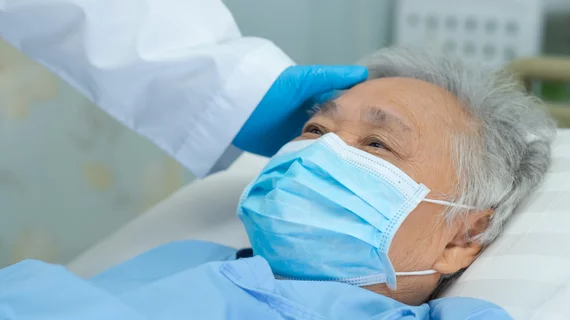COVID-19 patients undergoing TAVR may face a higher risk of death
Patients with a confirmed COVID-19 diagnosis may face a higher risk of poor transcatheter aortic valve replacement (TAVR) outcomes than patients who don’t have COVID-19, according to new findings published in the American Journal of Cardiology. The study’s authors did note that more research in this area is still needed.
The researchers explored data from more than 3,000 adult TAVR patients who were treated by one of 61 different healthcare providers. A total of 224 of those TAVR patients had a confirmed COVID-19 diagnosis. All procedures occurred from Jan. 20, 2020, to Jan. 30, 2021.
Overall, the team found that TAVR patients from the COVID-19 group were more likely to have hypertension, coronary artery disease, heart failure, diabetes, a history of smoking cigarettes, chronic obstructive pulmonary disease and a BMI under 30.
Importantly, all-cause mortality was also more common among patients in the COVID-19 group.
“The potential effect of SARS-COV-2 on [TAVR] cases is still poorly understand and potential long-term consequences need to be further explored,” wrote lead author Frank H. Annie, PhD, a research scientist at the CAMC Health Education and Research Institute in Charleston, West Virginia, and colleagues.
When possible, clinicians may want to delay these procedures for several weeks if a patient is diagnosed with COVID-19. That decision, the authors added, “should be tailored for each patient, factoring possible advantages … versus potential risks of delay.”
“There is a need for further prospective studies to define optimal timing for [TAVR] after SARS-CoV-2 infection to minimize adverse outcomes as reported in our analysis,” Annie et al. concluded.
Click here to read the full study.

